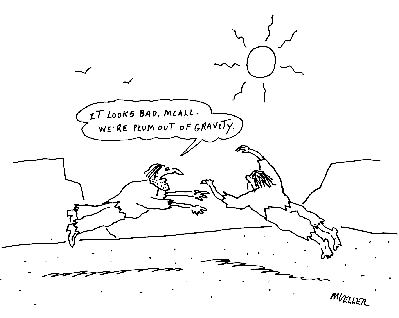

Gravitation :
Gravitation is a universal force of attraction acting between all matter. It is by far the weakest known force in nature and thus plays no role in determining the internal properties of everyday matter. Due to its long reach and universality, however, gravity shapes the structure and evolution of stars, galaxies, and the entire universe. The trajectories of bodies in the solar system are determined by the laws of gravity, while on Earth all bodies have a weight, or downward force of gravity, proportional to their mass, which the Earth's mass exerts on them. Gravity is measured by the acceleration that it gives to freely falling objects. At the Earth's surface, the acceleration of gravity is about 9.8 metres (32 feet) per second per second. Thus, for every second an object is in free fall, its speed increases by about 9.8 metres per second.

The works of Isaac Newton and Albert Einstein dominate the development of gravitational theory. Newton's classical theory of gravitational force held sway from his Principia, published in 1687, until Einstein's work in the early 20th century. Even today, Newton's theory is of sufficient accuracy for all but the most precise applications. Einstein's modern field theory of general relativity predicts only minute quantitative differences from the Newtonian theory except in a few special cases. The major significance of Einstein's theory is its radical conceptual departure from classical theory and its implications for further growth in physical thought.
Excerpt from the Encyclopedia Britannica without permission.